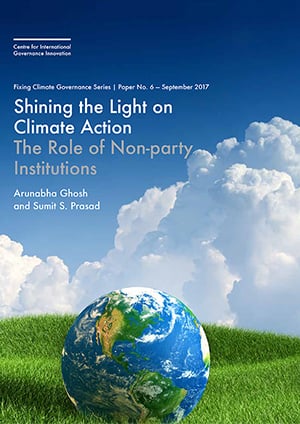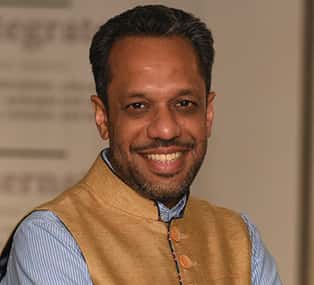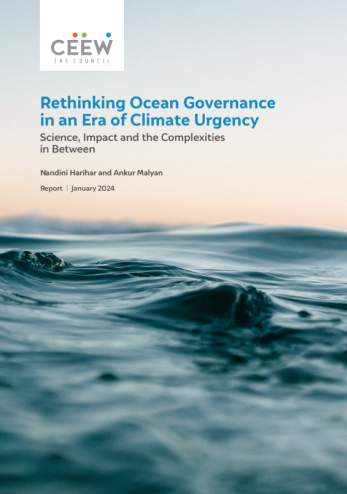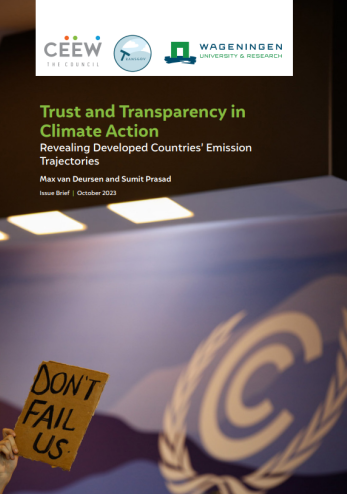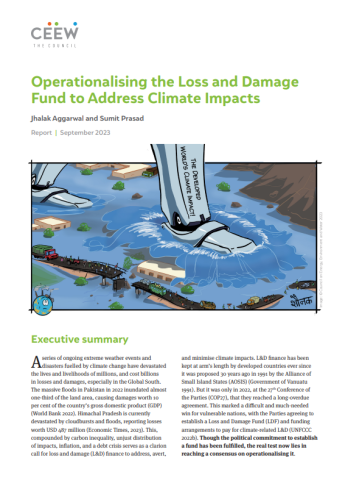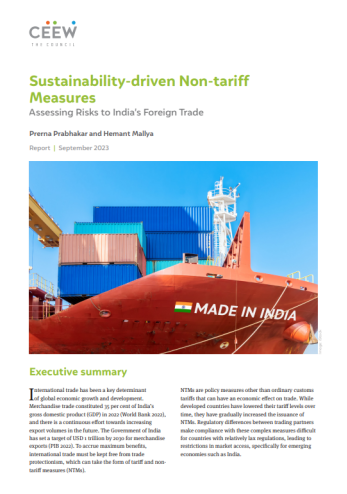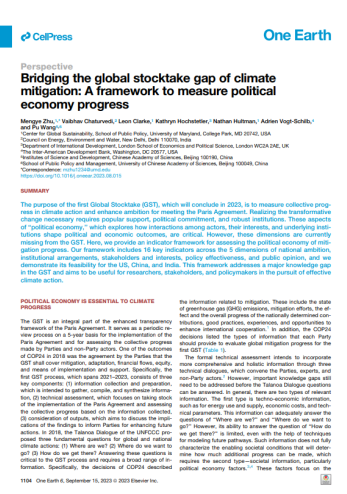Paper
Shining the Light on Climate Action
The Role of Non-party Institutions
Arunabha Ghosh, Sumit Prasad
September 2017 | International Cooperation
Suggested Citation: Ghosh, Arunabha and Sumit S. Prasad. 2017. "Shining the Light on Climate Action: The Role of Non-party Institutions." CIGI Fixing Climate Governance Series - Paper No 6.
Overview
This paper, part of the Fixing Climate Governance Series by the Centre for International Governance Innovation (CIGI), examines how non-Party stakeholders could supplement state efforts toward transparency and accountability. The transparency mechanism is a crucial part of the Paris Agreement, put in place to enhance the Parties’ trust in the UN climate regime.
Key Highlights
- Many states at present lack the institutional capacity to fully carry out their transparency obligations under the Paris Climate Agreement, to measure and report their greenhouse gas (GHG) emissions, or their steps to mitigate them; to perform technical reviews of all national reports; and to implement the planned “global stocktake” every five years.
- Parties should encourage non-Party stakeholders to supplement state efforts toward transparency and accountability. Non-governmental organizations (NGOs) could do so by: improving data for reporting; conducting independent assessments for reviews; informing the global stocktake; and assessing the collaborative platforms and initiatives, which were launched in parallel to the Paris Agreement. In some emerging economies, NGOs and the private sector already can supplement government work in emissions reporting, and their models should be spread to other developing countries.
- States should make the participation of non-Party stakeholders a more formal and legitimate part of the new transparency mechanism. To do so would mean investing in these stakeholders’ capacity to report on emissions and financial flows, developing common standards for country assessments, and giving the stakeholders a greater role in the review process.
- A group of UNFCCC-accredited research and independent NGOs — RINGOs — should form a task force, with the mandate to share practices, develop common standards and support capacity building. Philanthropic foundations, the CBIT Fund and host governments should provide financial assistance for this exercise, with members from developed and developing countries.
- The development of common standards will follow a staged process. The first step is that the RINGOs would have to agree on the methodologies to follow for counting and reporting emissions. Second, these standards would need to be accepted by governments, which is why the task force should be invited to present its findings and recommendations to the Ad Hoc Working Group on the Paris Agreement. A third (potential) step is that private-sector actors in various jurisdictions, or subnational government entities (cities and provinces), would voluntarily adopt these common protocols.
Non-Party stakeholders could supplement state efforts towards accountability and transparency.


